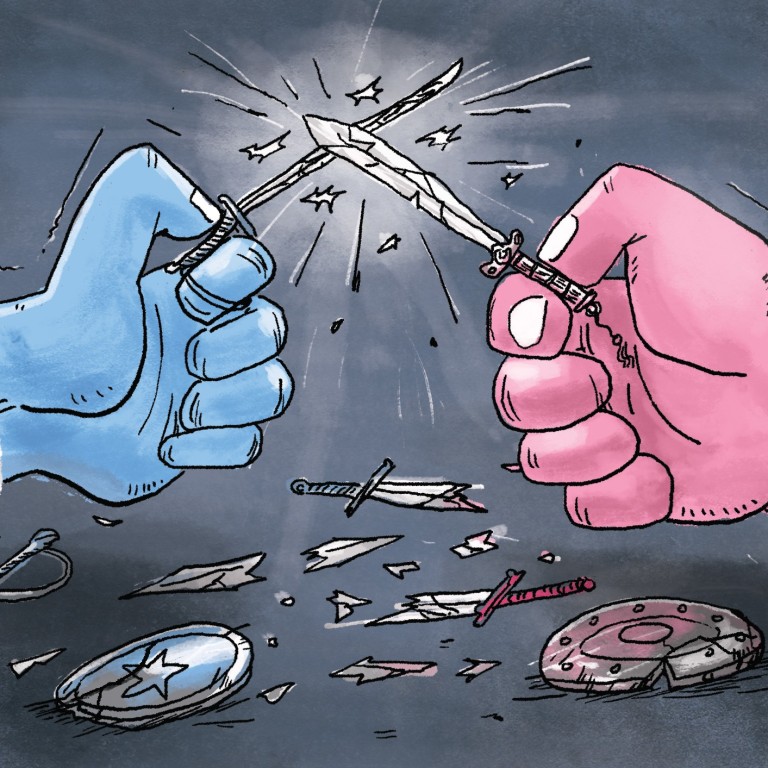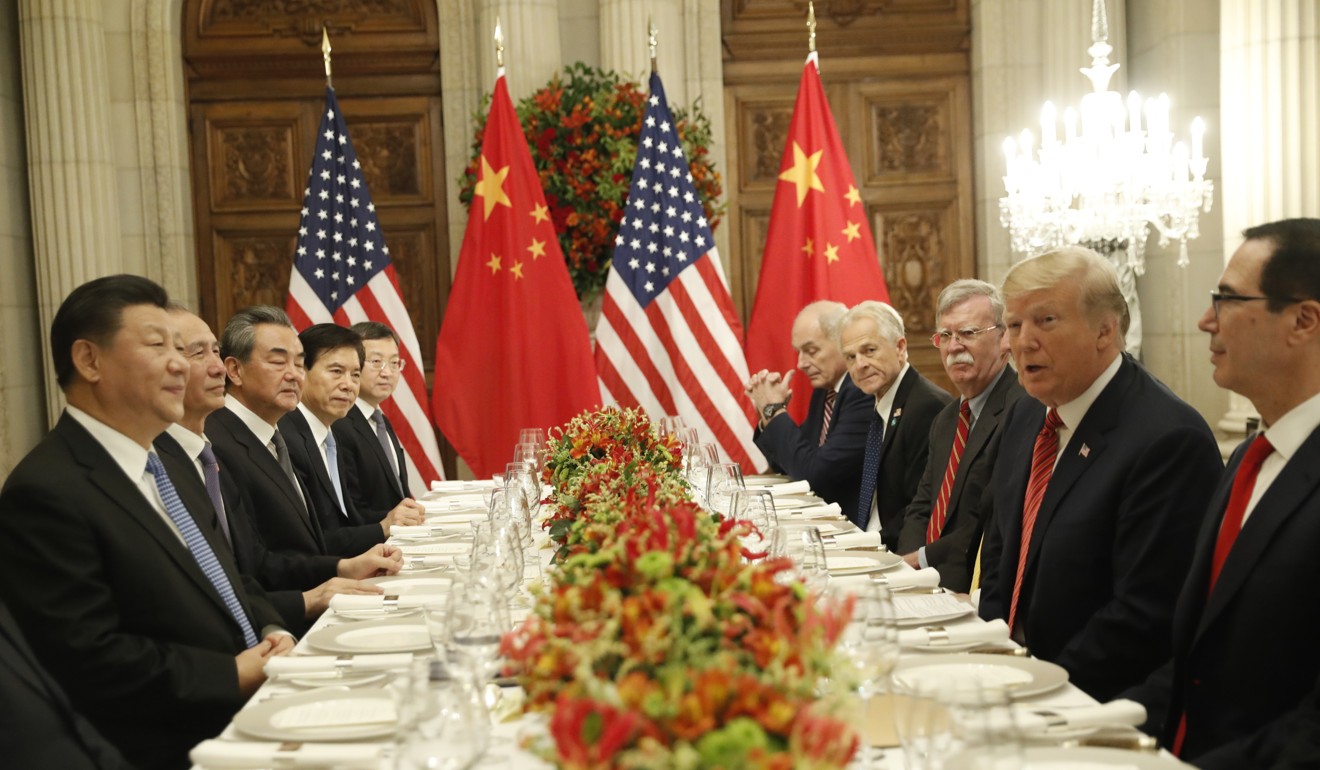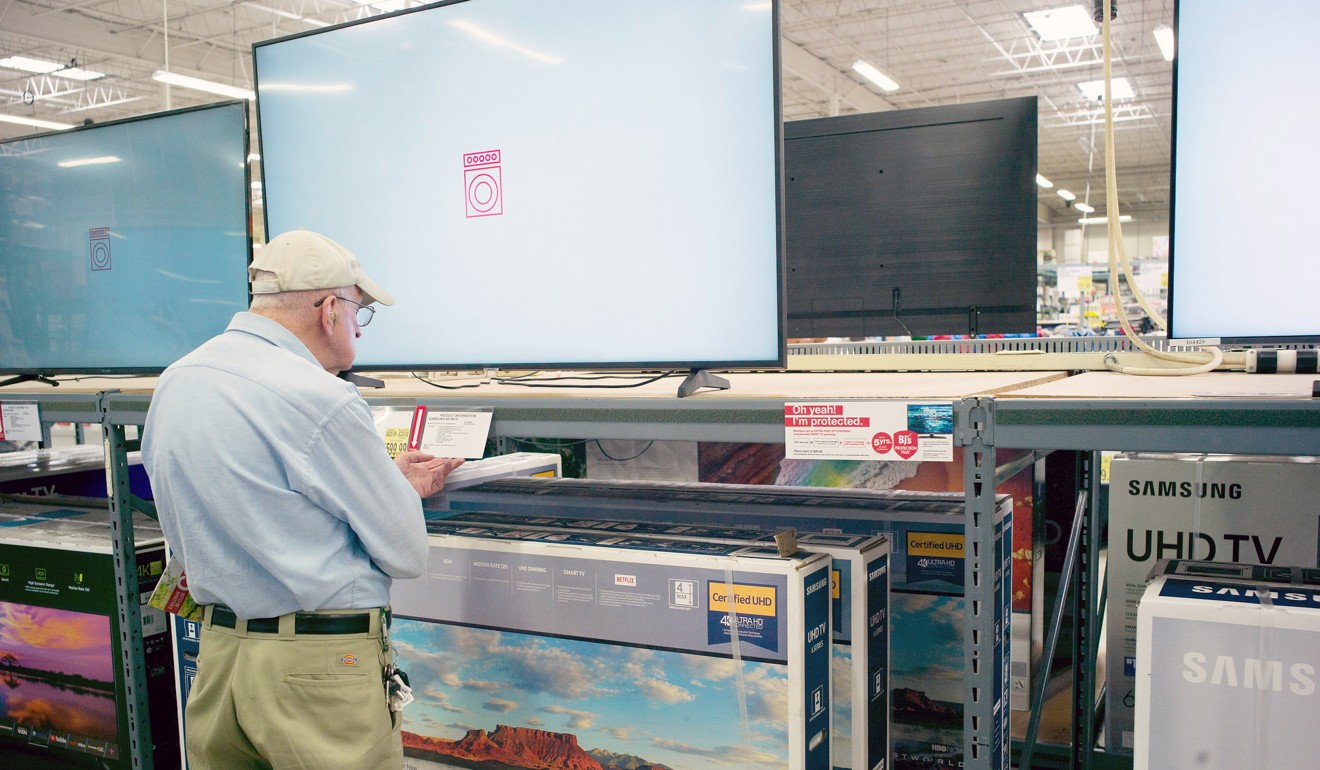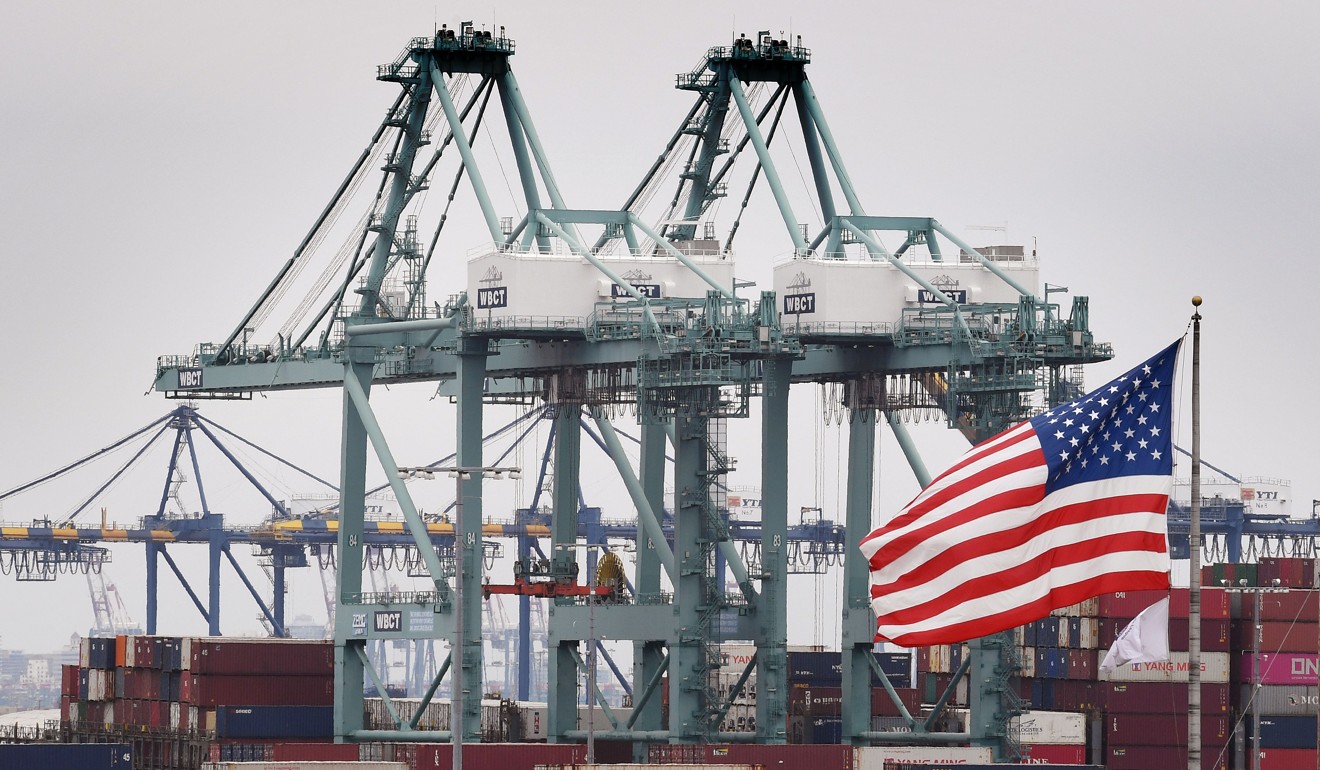
The high-stakes US-China showdown is hardly a game, but strategists see ‘game theory’ at work in trade war’s tactics, weapons and risks
- Experts predict a deal that Trump will claim as a great victory but that doesn’t significantly change Beijing’s controlling economic tactics
- ‘Like World War I, the two players are holding out for a win in the war of attrition,’ says a professor of managerial economics and decision sciences
Expect US President Donald Trump to emerge from this high-stakes US-China trade war with a face-saving deal that he will spin as a great success – but one that fails to fundamentally change China’s state control over markets, subsidies and theft of trade secrets.
That is the conclusion of experts in game theory and strategic negotiation based on an analysis of the plans, tactics and pressure points of both sides.
Game theory, which looks at strategic interaction among rational decision makers, was pioneered by mathematicians in the 1940s as a way to improve their modelling and has since been extended to a wide range of behavioural areas involving humans, animals and computers.
Viewed through this lens, the US-China trade war falls into the “war of attrition” category, in which two relatively dominant players stick doggedly to their incompatible positions, each expecting the other side to fold so they can emerge the winner, experts say.
The most famous example of this kind of showdown is the first world war.
But recent business examples include the confrontations between digital radio rivals Sirius and XM, social media players Facebook and MySpace, and digital auctioneers eBay and Yahoo, they say.
After exhaustive battles costing billions of dollars, Sirius and XM agreed to a “merger of equals”, while Facebook and eBay prevailed over the competition.
“Like World War I, the two players are holding out for a win in the war of attrition,” said Sandeep Baliga, a managerial economics and decision sciences professor at Northwestern University’s Kellogg School of Management in Evanston, Illinois.
What we think of as game theory is a matter of cold-blooded calculation. I don’t see Trump as a rational actor
“Trump is holding out for some deal where China opens its markets, stops subsidising industries,” he said. “And China wants the tariffs dropped and is willing to agree to something – but not, for example, subsidising its industry. They have contradictory positions, which are incompatible.”
There is no suggestion that the current US-China showdown will devolve into military conflict, but as they were in the first world war, the stakes are huge, the costs are global, the slide from threat to action has been rapid and both sides are convinced of their moral rectitude.
Fuelling the US-China trade showdown is what experts term “asymmetrical information” – wherein each side knows its own strengths and weaknesses, doesn’t know its adversary’s and slides into mutually destructive behaviour convinced the other side will cave with the next threat.
“So they both fight,” Baliga said.
Trade war could slice 1 per cent off China’s growth, top official says
Weapons in this battle include escalating rhetoric and threats, market restrictions and expanded tariffs, with the US most recently imposing 25 per cent tariffs on US$200 billion worth of Chinese imports and Beijing countering with up to 25 per cent tariffs on US$60 billion in American goods.
As both sides have doubled down, they must navigate what experts call “threat points” – economic and political vulnerabilities they seek to exploit in their adversary and soft-pedal on their own side.
For Chinese President Xi Jinping, these include the political risks associated with angry farmers, factory owners, consumers and a broader economy damaged by high tariffs, as well as nervous financial markets and the cost to his leadership if he miscalculates.
These are mirrored on Trump’s side to varying degrees, magnified by the risk that a trade-intensified recession or an apoplectic political base could derail his quest for a second term, a vulnerability Beijing has sought to exploit by targeting agriculture products in states he needs for re-election.

But Trump faces another perilous deadline as the tariff war expands, namely Christmas.
As he has run out of industrial goods to target, expanded duties are now set to hit televisions, iPhones, children’s toys and other consumer imports that affect ordinary voters more directly.
Xi is not without his own political survival risks, despite having recently engineered an end to term limits that potentially makes him president for life.
“China has no democracy, but it doesn’t mean there are no constraints,” said Cheng Li, a senior fellow at the Brookings Institution think tank in Washington.
Even though he does not face voters, Xi remains vulnerable to Communist Party adversaries who can use weak economic growth and rising social instability as a cudgel against him in the opaque, bare-knuckle world of Chinese politics.
What changes has China already made to meet US trade war demands?
“There is a great fear of ‘chaos’, or luan, in Beijing circles,” said Jocelyn Chey, visiting professor at Australia’s University of Sydney and former Australian consul general to Hong Kong.
“Limited criticisms may be made, but when critics unite to form a lobby group or faction, then the party is nervous.”
As the trade war with its accompanying uncertainty drags on, each side has redoubled efforts to compensate the home team so it can withstand more pain in the showdown.
On May 11, Trump announced another US$15 billion in subsidies to US farmers, following last summer’s US$12 billion handout.
“The government is having to support our industry,” said Mike Appert, who grows soybeans, corn and sunflowers in Hazelton, North Dakota. “But it’s not what any farmer wants. We want to sell our crops.”
China, likewise, has enacted a raft of stimulus, subsidies and liquidity measures, made easier in a state-led economic system where the government has much greater latitude to manipulate the market.
Beyond financial support, both sides have sought to boost morale so that those affected believe they are sacrificing for a bigger purpose.
Trump has repeatedly touted the “winning” strength of the US economy, extolled its ability to withstand pain better than China’s, blamed Beijing for unfair practices and denied – inaccurately – that Americans pay the cost of tariffs rather than China.
“There will be nobody left in China to do business with. Very bad for China, very good for USA! But China has taken so advantage of the US for so many years,” he said in a recent tweet.
Former Trump official says Beijing can afford to wait for a trade deal
Beijing, meanwhile, has used its compliant state media to slam US behaviour and appeal to Chinese patriotism, arguing in a recent People’s Daily editorial that national development does not depend on the US and that “super large” China will go from strength to strength under one-party rule.
The longer the trade war lasts, however, the more pain both sides inevitably feel, along with the rest of the world. The International Monetary Fund has forecast a significant ding to economic growth if the tariffs are not unwound.

And while open criticism of government policy is perilous in China, consumers and companies tend to vote with their feet and their wallets.
Capital outflow from equity markets for the two weeks ending May 17 was US$2.5 billion because of the trade war, its highest level since 2015, according to the Institute of International Finance. Consumer spending in April fell to its lowest level in 16 years.
Experts say an ideal US negotiating strategy would be to outline clear and consistent expectations, make explicit the cost of reneging or not implementing any agreed-upon terms, remain consistent, give the other side sufficient time to react after each ratcheting-up of pressure, keep emotions in check and avoid embarrassing or directly confronting the other side in public, particularly given the importance of face in Chinese political tradition.
Investors are pulling cash from China-region equity funds
“You don’t need to shame them publicly,” said Peter Johnston, author of Negotiating With Giants. “It’s much more effective to separate the relationship from the substance.”
As with any predictive model for human behaviour, however, game theory has its limitations, experts stress, particularly when it involves an American president who seems to eschew thoughtful policy or convention.
“What we think of as game theory is a matter of cold-blooded calculation,” said Andy McLennan, an economics professor at Australia’s University of Queensland. “I don’t see Trump as a rational actor.”
Unpredictability can be an advantage in negotiations.
“That may strengthen his hand, that he’s a crazy man. Who knows what he’ll do next,” said Thomas Prusa, economics department chair at Rutgers University in New Jersey.
But to be effective, the “crazy man” threat has to be credible.
And under pressure, Trump has a history of backing down, negotiating experts said, such as over his recent US government shutdown and after his initially blustery threats toward North Korea.
“Is this a credible threat? I don’t think so,” Prusa said.
Victory generally favoured the side that was patient, strategic and consistent, while Trump tended to be emotional, impulsive and not inclined to pursue coherent goals, McLennan said.
“His life experience has never taught him that this part of his emotional compass is askew, so we should expect more of the same.”
China’s biggest firms can weather trade war escalation, S&P says
Adding to the mix are self-inflicted wounds, including well-publicised differences within the Trump administration over strategy and poor use of partners.
Even as the administration has taken on China, it has alienated traditional allies with the same frustrations with China.
“China is delighted that Trump has done a great job driving the Europeans, Japan, Canada away from the United States,” Prusa said. “That’s a huge strategic blunder.”
Beijing has taken a more conventional, prudent approach, experts say, by responding to Trump in measured fashion while trying to avoid looking weak domestically.
“On the Chinese side, when there is a bull in the china shop, it is best not to wave red flags,” McLennan said. “Thus it makes sense for them to be relatively quiet and patient.
“But also, at some point, you have to respond to the emotions telling you you’re not supposed to take it lying down, so we now have a modest but definite amount of retaliation,” he said. “This makes sense to me.”
This approach carried risks, he said, but so did most strategies.

Experts say many unknown factors also make the outcome far from determinable, including whether internal pressure on Beijing is greater than it appears, the US or China suffers an economic recession, the US gets involved in armed conflict in Iran and how each side plays its hand moving forward.
They add that China’s weaknesses are less obvious, more difficult to assess and may be greater than they appear, given the opaque nature of the country’s political system.
But on the face of it, experts say, the odds are with the Chinese in this high-stakes showdown.
“The party with the most to lose generally gets the worst deal,” said Douglas Burnheim, an economist at Stanford University in California.
“My prediction (based on the strategic considerations) is that Xi will toss Trump a few bones – just enough to give him a foundation for spinning a favourable story. We’ll end up with a lousy trade deal, and with Trump thumping his chest while proclaiming victory.”
“My guess is that, in the end, Trump will cave because he’s somewhat of a caver and the political implications are getting worse and worse,” Baliga said. “He has a deadline.”

